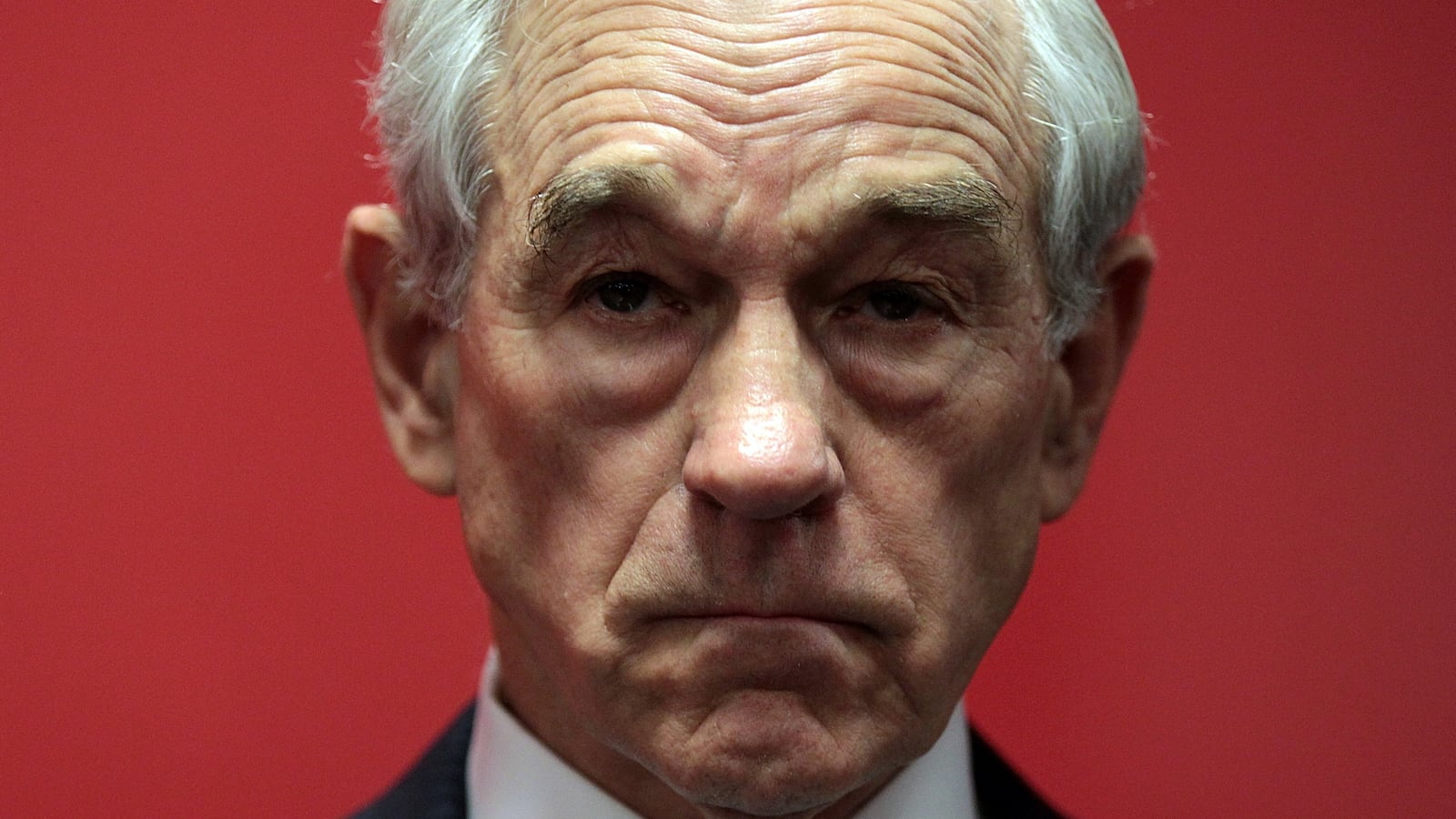Former Rep. Ron Paul believes that the government knew beforehand, in detail, about the September 11, 2001 terrorist attacks, and that the information has been kept from the public in a classified section of the 9/11 commission report.
When the host of Money and Markets, Charles Goyette, recently said that it is "shocking that the American people are prohibited from knowing the whole truth about 9/11," Paul countered: "Boy, that's for sure. It's shocking, but then, when you stop and think about it, shouldn't we expect this from our government? Which is really sad."
Paul admitted of his beliefs: "It's politically very risky to talk about it," particularly when your son is in the process of trying to run for president, which Paul's son, Kentucky Senator Rand Paul, is.
The younger Paul is an early frontrunner for the Republican nomination, although he has not yet announced his candidacy. As the primary nears, he has — you may understand why, after reading this article — distanced himself from his father, who himself made three unsuccessful bids for the White House, in 1988, 2008, and 2012.
But political risk could not stop the elder Paul, who then went onto say: "I've come to the conclusion that all government commissions are designed to protect the government. … I believe that if we ever get the full truth [about 9/11], we'll find out that our government had it in the records exactly what the plans were, or at least close to it."
Reasonable man that he is, Paul conceded that the U.S. government probably didn't actually plot 9/11 because, you know, that would be crazy: "Does [foreknowledge of the attacks] prove that our president and others actually sat down and laid the plans and did this? I don't think it does, but I think it does show that one of the reasons why they want to cover it up is because they don't want to say, the FBI and the CIA were, at the time, spending $40 billion a year to spy on everybody to make us safe and secure, and therefore they really messed up, so they had to hide that."
Paul then offered that "our own government did more harm to the liberties of the American people than Bin Laden did."
But don't think Paul isn't versatile. He also expressed deep skepticism that the government was forthcoming about the details of the assassinations of John F. Kennedy and Martin Luther King: "The Kennedy assassination probe and commission — we don't know the truth about that, and probably about 80 percent of the American people don't believe Oswald was the only one involved. … Also we don't know all we should know about Martin Luther King's assassination, either."
Rand Paul was elected to the Senate in 2010 with the help of his father's supporters. Back then, he often expressed beliefs that seemed close-to-in-line with his father's worldview. In 2009, ahead of his announcement that he would seek the Senate seat he now inhabits, the younger Paul candidly discussed his theory about 9/11, which was that former Vice President Dick Cheney's ties to Halliburton were dictating U.S. foreign policy: "When the Iraq War started, Halliburton got a billion dollar no-bid contract. Some of the stuff has been so shoddy and so sloppy that our soldiers are over there dying in the shower from electrocution. I mean, it shouldn't be sloppy work; it shouldn't be bad procurement process. But it really shouldn't be that these people are so powerful that they direct even policy."
The younger Paul is considered a more electable candidate than his father, and has been open about his desire to market himself and his message to a wide range of voters — not just to ideologues. In March, Rand Paul said that he would no longer be answering questions about his father’s statements. Which is a shame, because the Republican primary would be a lot of fun if the frontrunner constantly had to assure everyone that he didn’t think 9/11 was an inside job.
Ron Paul seems entirely unconcerned about what impact his extremist statements could have on his son's presidential aspirations.
Thanks, Dad.





